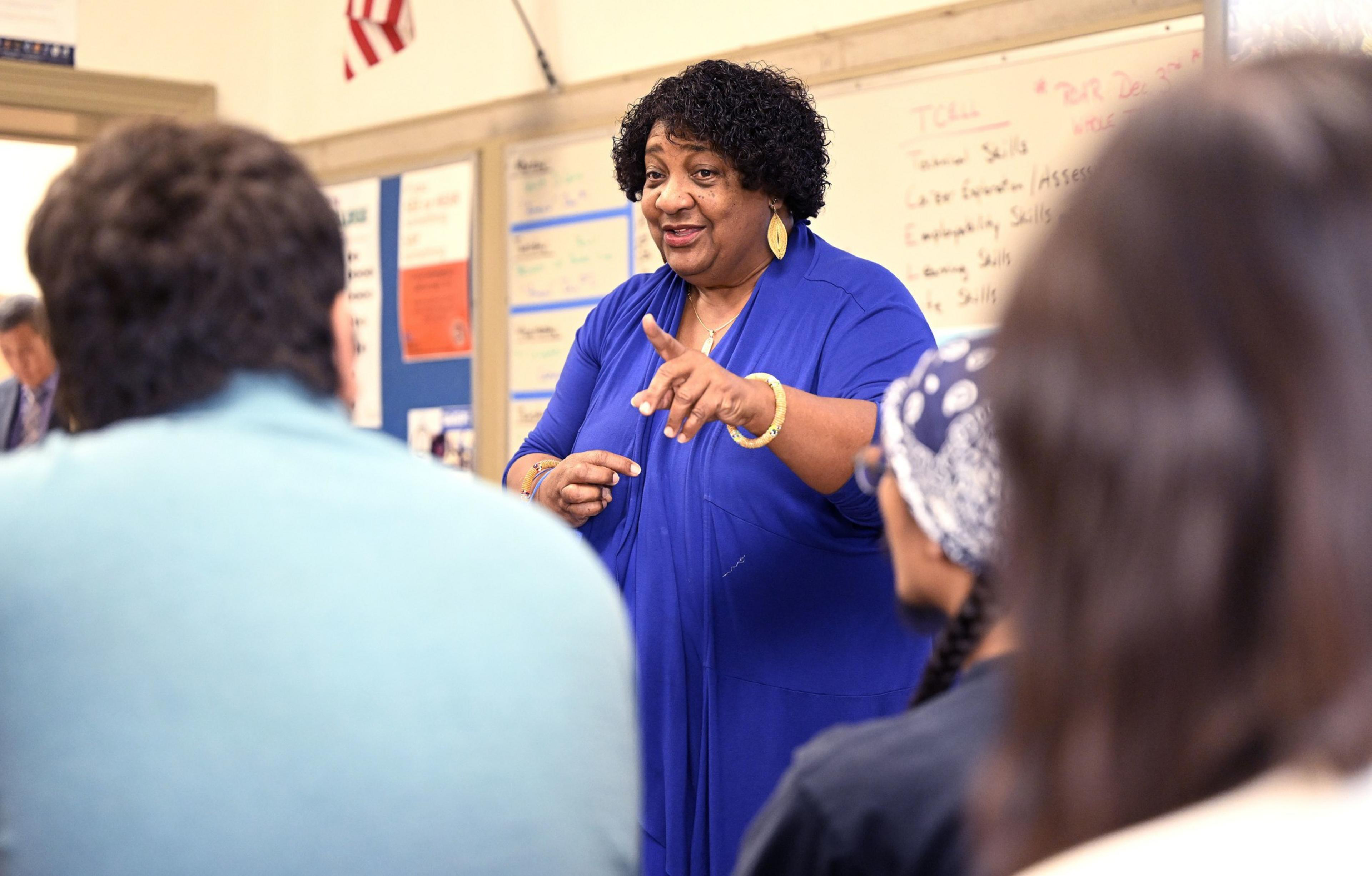Update: Laphonza Butler was appointed to complete Dianne Feinstein’s term. Here’s what we know about her.
With the death of U.S. Sen. Dianne Feinstein, California Gov. Gavin Newsom must appoint her replacement, and there is mystery around who that could be.
MORE: Dianne Feinstein Is Dead at 90: See Photos of Her Life
Under California’s Elections Code, Newsom will make an appointment to fill the vacancy and to issue a writ of election to determine who will fill the seat for a full term. If the vacancy occurs 148 days or longer before the next regularly scheduled primary election, that election will take place during the next regularly scheduled primary election. The next statewide primary election is set for March 5, 2024.
Speaking on Meet the Press (opens in new tab) in earlier this month, Newsom said that if Feinstein were to vacate her seat before her term ended in 2024, he would not appoint any of the three candidates who had already begun running for that election—U.S. Reps. Barbara Lee, Adam Schiff and Katie Porter. (Feinstein had said, prior to her death, that she did not intend to seek reelection next year.)
Instead, Newsom said, he would instead make an “interim appointment.”
Newsom had previously promised to nominate a Black woman (opens in new tab) to represent California in the Senate if Feinstein were to leave office. The governor made no immediate announcement Friday on an appointment, and his office did not respond to a request for comment on the timing of selecting a replacement for Feinstein.
This is the second time since 2020 that Newsom has been faced with appointing a U.S. senator. As a point of comparison, after Kamala Harris won the vice presidency in November 2020, Newsom selected Sen. Alex Padilla to replace her (opens in new tab) roughly six weeks later, on Dec. 22, 2020.
Interim Appointee Idea Unpopular, Poll Shows
Whomever Newsom chooses would have the advantage of being an incumbent, should they decide to seek reelection in 2024.
Most voters want Newsom to appoint someone prepared to seek reelection, rather than an interim appointee, according to a recent Berkeley Institute of Governmental Studies poll (opens in new tab).
“While most Californians prefer that Newsom appoint a successor to Feinstein who will run for the full term, if put in this position, the governor’s political calculus is complicated,” institute co-director Eric Schickler said upon the poll’s release. “With three well-known and well-liked Democrats vying for the seat, appointing a likely successor would divide the governor’s supporters.”
Rep. Barbara Lee bristled at Newsom’s comments on Meet the Press, writing, “Black women deserve more than a participation trophy.”
California Secretary of State Shirley Weber, a 75-year-old Black woman who formerly served in the California State Assembly, has been mentioned as a possible appointee to Feinstein’s seat.
Weber may be the most likely candidate to fill the seat, said Jason McDaniel, a political science professor at San Francisco State University. McDaniel said appointing Weber would allow Newsom to fulfill his promise to appoint a Black woman to the Senate, noting that she is unlikely to enter the 2024 senatorial race herself.

Other names that have been discussed include Holly Mitchell, a Los Angeles County supervisor, and Angela Glover Blackwell, a civil rights lawyer in Oakland, according to the New York Times (opens in new tab). Mitchell has shown that she can win elections, but likely isn’t prepared to run for Senate, McDaniel said.
San Francisco Mayor London Breed may be another possibility, McDaniel said. But he noted that appointing her could be seen as interfering with the 2024 senatorial race.

Other high-ranking Black women in California include Controller Malia Cohen and Los Angeles Mayor Karen Bass, who previously served in Congress and as Speaker of the California State Assembly.
According to a September poll, Schiff is the leading candidate for the U.S. Senate seat, though many voters remain undecided. (opens in new tab)
Feinstein’s death further narrowed the Democrats’ already thin majority in the Senate, although it is unlikely that one fewer vote will hurt Democrats in stopping a looming government shutdown, as there is bipartisan support to pass a stopgap measure to prevent one.
Feinstein had long battled health issues leading up to her death. The senator died at her Washington, D.C., home on Thursday night, according to a statement from her office (opens in new tab).
Her death came after a bout of shingles sidelined her for more than two months earlier this year—an absence that drew frustration from her most liberal critics and launched an unsuccessful attempt by Democrats to temporarily replace her on the Senate Judiciary Committee. When she returned to the Senate in May, she was frail and using a wheelchair, voting only occasionally.
On Friday morning, her Senate desk was draped in black and topped with a vase of white roses. Senators gave tearful tributes as members of the California House delegation stood in the back of the chamber and former House Speaker Nancy Pelosi sat in the gallery with Feinstein’s daughter, Katherine.
Feinstein was elected to the San Francisco Board of Supervisors in 1969 and became its first female board president in 1978, the year Mayor George Moscone was gunned down alongside Supervisor Harvey Milk at City Hall by Dan White, a disgruntled former supervisor. Feinstein found Milk’s body.
After Moscone’s death, Feinstein became San Francisco’s first female mayor. In the Senate, she was one of California’s first two female senators, the first woman to head the Senate Intelligence Committee and the first woman to serve as the Judiciary Committee’s top Democrat.
Following her death, condolences rolled in from elected officials nationwide honoring legislative achievements and trailblazing legacy.
“Every race she won, she made history, but her story wasn’t just about being the first woman in a particular political office, it was what she did for California, and for America, with that power once she earned it,” Newsom said in a statement. “That’s what she should be remembered for.”
